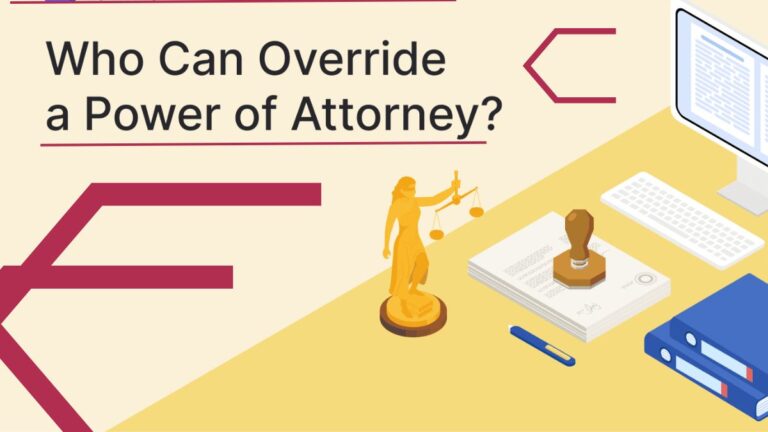What Is An Attorney In fact?
Are you curious about the legal world and its fascinating intricacies? Perhaps you’ve heard the term “attorney in fact” thrown around, but aren’t quite sure what it means. Well, fear not! In this blog post, we’ll dive deep into the realm of attorneys in fact and uncover their role within the legal system.
From their duties to how one becomes an attorney, in fact, we’ll leave no stone unturned. So grab a cup of coffee and prepare to expand your knowledge on this intriguing subject!
What is an attorney in fact?
An attorney in fact is an individual who has been granted the legal authority to act on behalf of another person. This authority is typically established through a legal document known as a power of attorney. Unlike an attorney at law, who is licensed to practice law and represents clients in court, an attorney in fact does not necessarily have a background in law.
The role of an attorney in fact can vary depending on the specific powers granted within the power of attorney document. These powers may include managing financial affairs, making healthcare decisions, or even conducting real estate transactions. Essentially, the duties and responsibilities of an attorney in fact are determined by the scope outlined within the power of attorney agreement.
It’s important to note that being designated as an attorney in fact carries significant responsibility and trust. The actions taken by an individual acting as someone’s agent can have serious legal and financial consequences. Therefore, it is crucial for attorneys in fact to act with integrity and always prioritize the best interests of their principal.
While attorneys at law represent clients within the courtroom setting, attorneys in fact operate under a different set of circumstances altogether. They possess legal authority delegated from another person through a power of attorney document and carry out various tasks on their behalf. Understanding this distinction will help shed light on how these individuals navigate their roles within our complex legal system
What are the duties of an attorney in fact?
The duties of an attorney in fact are crucial to understand, as they play a vital role in managing legal affairs on behalf of another person. An attorney in fact is granted power through a legal document called a power of attorney. This grants them the authority to act as the representative or agent for someone else, known as the principal.
One of the primary responsibilities of an attorney in fact is to make financial decisions and manage assets on behalf of the principal. This includes paying bills, managing investments, and handling real estate transactions. They must act diligently and ethically while making these decisions, always keeping the best interests of the principal in mind.
Additionally, an attorney in fact may also be responsible for making healthcare decisions for the principal if they become incapacitated. This can involve working closely with medical professionals and ensuring that medical treatments align with the wishes previously expressed by the principal.
Furthermore, it is essential for attorneys in fact to keep detailed records and maintain accurate documentation regarding all their actions on behalf of the principal. These records should include financial transactions, communication with third parties, and any other relevant information related to their duties.
How do you become an attorney in fact?
- Becoming an attorney in fact is not a complicated process, but it does require some specific steps. If you are interested in taking on this role, here’s what you need to do.
- First and foremost, you must be appointed as an attorney in fact by the principal. This can be done through a power of attorney document that grants you the authority to act on their behalf. The principal may choose to give you general or limited powers, depending on their needs and preferences.
- Once appointed, it is crucial to familiarize yourself with your responsibilities and duties as an attorney in fact. These may include managing the principal’s finances, making healthcare decisions, handling legal matters, or conducting real estate transactions.
- To ensure that your actions are legally binding and recognized by others, it is essential to follow all applicable laws and regulations governing attorneys in fact within your jurisdiction. This may involve registering with relevant authorities or obtaining any necessary certifications or licenses.
- Furthermore, maintaining open communication with the principal is vital throughout your tenure as an attorney in fact. This ensures that their wishes are properly understood and respected while allowing them to provide guidance or make changes if needed.
- Becoming an attorney in fact requires being designated by a principal through a power of attorney document and understanding your obligations under the law. It also involves fulfilling any registration requirements or obtaining necessary certifications within your jurisdiction. Open communication with the principal is key throughout this role.
Conclusion
Becoming an attorney in fact can provide individuals with the legal authority to handle important matters on behalf of someone else. Whether it’s managing financial affairs, making healthcare decisions, or handling other personal or business matters, an attorney in fact plays a crucial role.
Throughout this article, we have explored what an attorney in fact is and their duties. We have learned that an attorney in fact is not necessarily a lawyer but someone who has been given the power of attorney by another person. They act as a trusted representative and make decisions on behalf of the principal.






